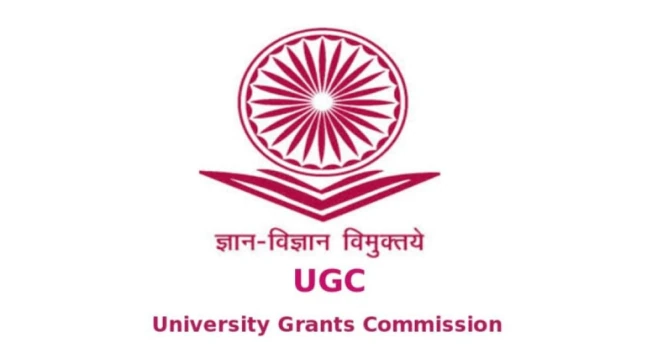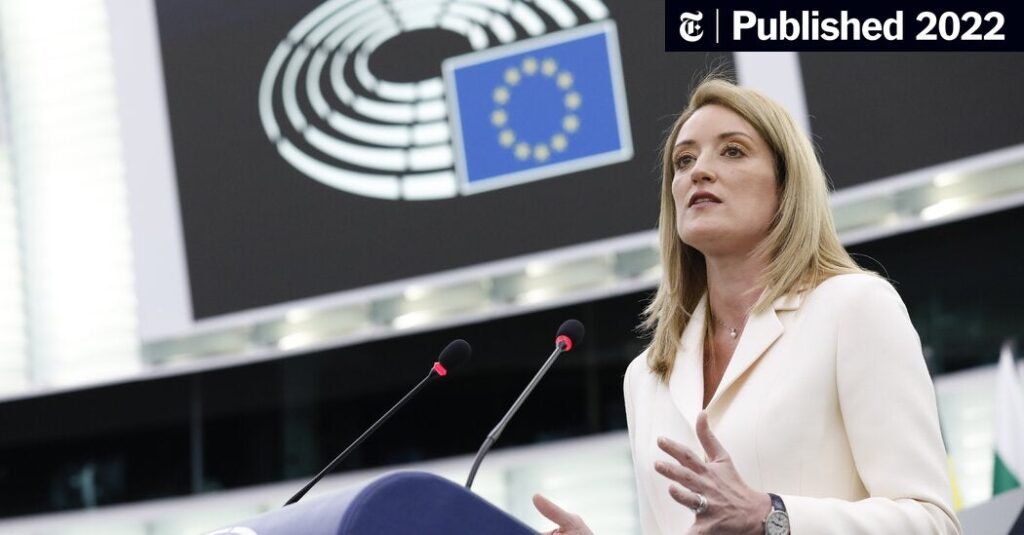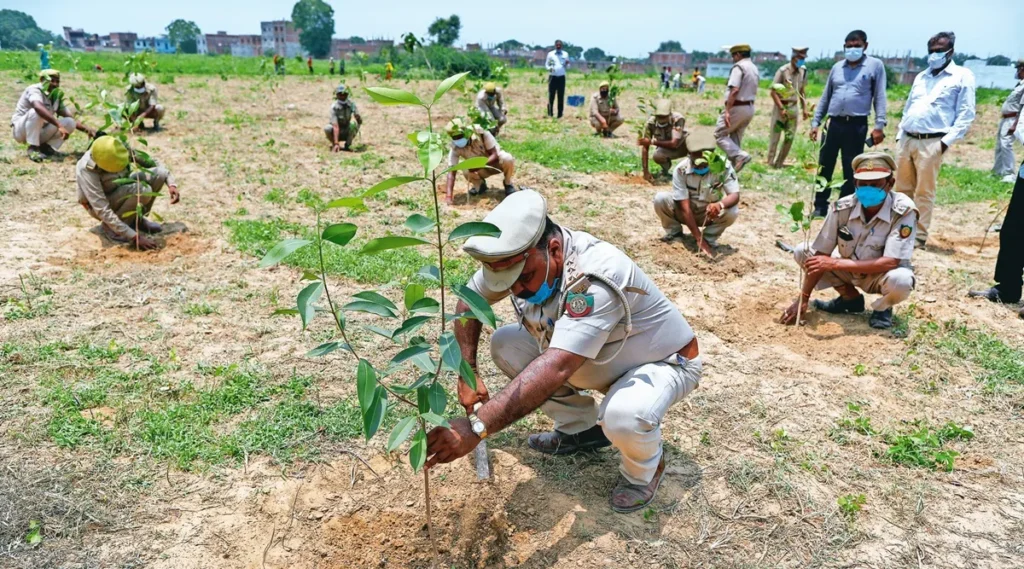Haryana Announces 10% Job Quota, ₹60,000 Subsidy For Agniveers

Context and Details:
On July 17, 2024, the Haryana government announced a significant policy aimed at supporting Agniveers, soldiers recruited under the Agnipath scheme. The policy includes a 10% job quota and a ₹60,000 subsidy for Agniveers in various state government posts, including constable, mining guard, forest guard, and jail warden.
Objective:
The initiative seeks to recognize and reward the service of Agniveers, facilitating their transition to civilian life and providing them with stable employment opportunities after their military tenure.
Implementation:
The quota will be integrated into the recruitment processes for the specified posts, ensuring that Agniveers have reserved positions. The ₹60,000 subsidy will aid in their resettlement, covering costs related to job application processes, training, and other necessary expenses.
Impact:
This policy is expected to boost morale among Agniveers, offering them a clear pathway to civilian employment. It also aligns with the broader goals of the Agnipath scheme, which aims to modernize the Indian armed forces while providing young soldiers with valuable skills and career opportunities post-service.
Challenges:
While the policy is commendable, its implementation will need careful monitoring to ensure that the intended beneficiaries are indeed the ones receiving the benefits. Additionally, the state government will need to coordinate with various departments to integrate these new quotas without disrupting existing recruitment processes.
Asian Development Bank Retains India’s Growth Forecast At 7% For FY25

Context and Details:
On July 17, 2024, the Asian Development Bank (ADB) maintained India’s GDP growth forecast at 7% for the fiscal year 2024-2025. This decision was based on a range of economic indicators suggesting a steady recovery and growth trajectory.
Key Factors:
- Economic Rebound: ADB cited a rebound in domestic consumption and investment as primary drivers of growth. The post-pandemic economic recovery has been bolstered by government policies, increased industrial activity, and a rise in consumer confidence.
- Inflation and Fiscal Policies: Effective fiscal policies and measures to control inflation have played a critical role in stabilizing the economy. The government’s focus on infrastructure development and social welfare programs has also contributed positively.
- Global Factors: Despite global uncertainties, including geopolitical tensions and fluctuating commodity prices, India’s diversified economy and robust domestic market have provided a cushion against external shocks.
Outlook:
The 7% growth forecast aligns with India’s long-term economic goals, emphasizing sustainable and inclusive growth. Continued policy support, structural reforms, and investments in key sectors like technology, manufacturing, and services are expected to sustain this growth rate.
Challenges:
Maintaining this growth rate will require addressing issues such as unemployment, rural distress, and ensuring equitable distribution of growth benefits. Additionally, external factors like global economic slowdowns or significant geopolitical disruptions could pose risks to the forecast.
Tim Walker’s “The Prisoner Of Bhopal”: A Novel Commemorating The 40th Anniversary Of The Bhopal Gas Tragedy

Context and Details:
Award-winning designer-turned-author Tim Walker has published a historical fiction novel titled “The Prisoner of Bhopal.” Released on July 17, 2024, the book commemorates the 40th anniversary of the Bhopal gas tragedy, one of the world’s worst industrial disasters.
Plot and Themes:
“The Prisoner of Bhopal” is set against the backdrop of the 1984 gas leak in Bhopal, which claimed thousands of lives and left many more suffering from chronic health issues. The novel weaves a fictional narrative with historical events, focusing on the experiences of survivors and their ongoing struggles for justice and compensation.
Purpose and Impact:
Walker aims to educate a new generation about the tragedy, emphasizing the human stories behind the statistics. The book is intended for young readers, providing an accessible yet poignant account of the disaster and its aftermath.
Reception:
Early reviews have praised the novel for its sensitive portrayal of a complex and painful subject. Critics highlight Walker’s ability to blend factual accuracy with compelling storytelling, making it both an educational and emotionally engaging read.
Significance:
By bringing attention to the Bhopal gas tragedy through literature, Walker contributes to the broader discourse on industrial safety, corporate accountability, and the long-term impacts of environmental disasters. The novel serves as a reminder of the need for stringent safety regulations and the importance of remembering and learning from past tragedies.
UGC’s ASMITA Project: 22,000 Indian Language Books To Transform Higher Education

Context and Details:
On July 17, 2024, the Ministry of Education and the University Grants Commission (UGC) launched the ASMITA project, aiming to transform higher education through the introduction of 22,000 books in Indian languages.
Objective:
The ASMITA project seeks to enrich Indian language literature, promoting linguistic diversity and making educational resources more accessible to students across the country. It aims to bridge the gap in higher education resources available in regional languages.
Implementation:
- Book Selection: A comprehensive selection process will ensure that the books cover a wide range of subjects, from humanities to sciences, catering to the diverse academic needs of students.
- Translation and Publishing: The project will involve translating existing works into Indian languages and publishing new titles. Partnerships with academic institutions and publishers will be crucial.
- Distribution: The books will be distributed to libraries, colleges, and universities across India, ensuring wide accessibility.
Impact:
The ASMITA project is expected to democratize higher education, allowing students to learn in their mother tongue. This will not only enhance comprehension but also preserve and promote regional languages and cultures.
Challenges:
Ensuring high-quality translations and managing the logistics of distribution will be key challenges. Additionally, there will be a need for continuous updates to the book collection to keep up with advancements in various fields.
Roberta Metsola Re-Elected As European Parliament President

Context and Details:
On July 17, 2024, Roberta Metsola, a prominent Maltese politician, secured a historic second term as President of the European Parliament. She is the first woman to achieve this milestone.
Background:
Metsola has been a member of the European Parliament since 2013 and became its president in January 2022. Her leadership has been marked by a focus on democratic values, human rights, and strengthening the EU’s legislative framework.
Achievements:
- Legislative Initiatives: Metsola has overseen significant legislative efforts aimed at enhancing transparency, sustainability, and economic resilience within the EU.
- Advocacy for Gender Equality: She has been a strong advocate for gender equality and women’s rights, pushing for policies that promote equal opportunities and representation.
- International Relations: Under her leadership, the European Parliament has strengthened its role in global diplomacy, addressing critical issues such as climate change, migration, and digital transformation.
Significance:
Metsola’s re-election reflects her effective leadership and the trust placed in her by fellow parliamentarians. Her continued presidency is expected to bring stability and continuity to the European Parliament’s agenda, particularly as the EU navigates post-pandemic recovery and geopolitical challenges.
Challenges:
Metsola will face the challenge of maintaining unity within the European Parliament, addressing economic disparities among member states, and responding to external pressures from global political dynamics.
SBI Launches Amrit Vrishti 444-Days Term Deposit With 7.25% Interest Rate

Context and Details:
On July 17, 2024, the State Bank of India (SBI) launched a new term deposit scheme called “Amrit Vrishti.” This scheme offers a 7.25% interest rate for a tenure of 444 days.
Features:
- Interest Rate: The scheme provides a competitive interest rate of 7.25%, making it an attractive option for investors seeking stable returns.
- Tenure: The term deposit has a fixed tenure of 444 days, offering a balance between short-term and medium-term investment.
- Accessibility: The scheme is available to both retail and corporate customers, providing flexibility for various types of investors.
Objective:
The Amrit Vrishti scheme aims to attract deposits and enhance liquidity within the banking system. It is part of SBI’s broader strategy to offer diverse financial products catering to different investor needs.
Impact:
The scheme is expected to garner significant interest from customers, contributing to increased deposit mobilization for SBI. It also provides a secure investment avenue with guaranteed returns, appealing to risk-averse investors.
Challenges:
Ensuring widespread awareness and understanding of the scheme among potential investors will be crucial. Additionally, SBI will need to manage the liquidity effectively to meet the obligations of the scheme.
MP Govt Plants 11 Lakh Trees In Single Day, Sets World Record

Context and Details:
On July 14, 2024, Indore in Madhya Pradesh set a new Guinness World Record by planting 11 lakh trees in a single day. This initiative was part of the state government’s environmental conservation efforts.
Objective:
The mass tree-planting event aimed to enhance green cover, combat climate change, and promote environmental sustainability. It also sought to raise awareness about the importance of afforestation and conservation.
Implementation:
- Community Participation: The event saw participation from thousands of volunteers, including students, NGOs, and government officials.
- Planning and Coordination: Extensive planning and coordination ensured the successful execution of the event. Saplings were sourced and distributed across designated planting sites.
- Sustainability: Follow-up measures were put in place to ensure the survival and growth of the planted trees, including regular monitoring and


